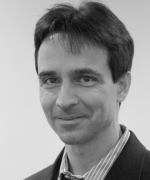About
Thomas Fent is a population economist at the Wittgenstein Centre for Demography and Global Human Capital.
He conducts research in various fields of demography with a focus on the impact of social effects on demographic behaviour. He published articles in professional journals and edited volumes on union formation, fertility, family dynamics, and family policies but also on the economics of ageing, investment in human capital, and economic growth. He applies agent-based models, formal mathematical methods, computer simulations, and empirical methods. He taught at ETH Zurich, WZB - Berlin Social Science Center, Max Planck Institute for Demographic Research in Rostock, University of Vienna, Vienna University of Technology, Medical University of Vienna, La Sapienza University Rome, University of Padua, KU Leuven, University of Bamberg, Danube University Krems, and IMC University of Applied Sciences Krems.
He studied applied mathematics/mathematical methods in economics at the Vienna University of Technology and at the Noordelijke Hogeschool Leeuwarden. He held affiliations with the Institute of Business Management of the University of Vienna and with the Department Management, Technology, and Economics of the Swiss Federal Institute of Technology (ETH Zurich).
Areas of Expertise
- Social Interactions & Demographic Behaviour
- Fertility, Family Dynamics, and Family Policies
- Economics of Ageing
- Ageing and Human Capital
- Agent-based Models
Curriculum Vitae
Contact
Affiliation: VID/ÖAW E-Mail: thomas.fent(at)oeaw.ac.at
Phone: +43 1 51581-7715
Other Resources
The Wittgenstein Centre aspires to be a world leader in the advancement of demographic methods and their application to the analysis of human capital and population dynamics. In assessing the effects of these forces on long-term human well-being, we combine scientific excellence in a multidisciplinary context with relevance to a global audience. It is a collaboration among the Austrian Academy of Sciences (ÖAW), the International Institute for Applied Systems Analysis (IIASA) and the University of Vienna.

